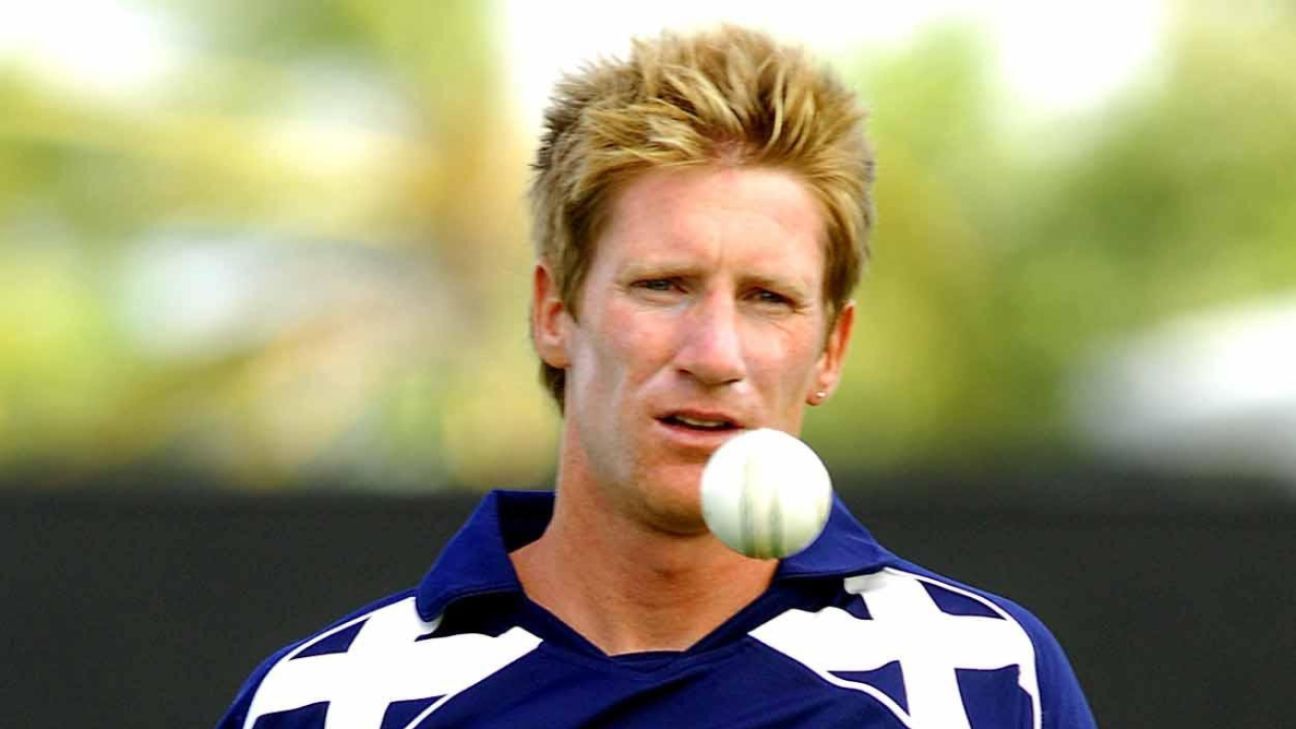Cricket
Cricket Scotland’s CEO calls Blain’s public comments ‘very disappointing’

At the centre of the row is Fitzboydon’s letter to Blain, dated January 12, in which he stated that allegations of racism against him had been “unfounded”. Cricket Scotland clarified in its statement on Tuesday that those allegations against Blain had not been progressed further “due to a combination of insufficient evidence, a lack of an applicable rule at the time of the complaint, and/or a lack of jurisdictional remit or authority to take formal action”.
But Blain has accused Cricket Scotland of making “a desperate attempt to reinvent history and to row back from an unequivocal exoneration”, and alleged Lindblade had confirmed the claims were “unfounded” on a phone call shortly after she replaced Fitzboydon in February.
“Not only did Pete Fitzboydon, the CEO of Cricket Scotland, write to me in January to say that all of the claims against me were unfounded, that I had no case to answer, and my case was closed, but that position was clearly confirmed by his successor Trudy Lindblade in a phone call with me in February,” wrote Blain in his statement.
“She reiterated on the call that the claims against me were unfounded and the case against me was closed. I am sure that, if asked, she will publicly confirm that to be the case.”
Lindblade confirmed she made the phone call to Blain in February and, while unwilling to give specific details of the conversation, said Cricket Scotland would take up the matter with Blain and his legal representatives.
“It’s disappointing to have such a personal comment made in a public space,” Lindblade told ESPNcricinfo. “I had a conversation with John in the first weeks of starting in my role. It’s very disappointing that lines have been drawn. We can’t get into specific cases and it’s something that we should speak to John and his representatives directly.”
Lindblade said she has had contact with both complainants and those accused in the allegations under investigation since taking up the role, although the processes in place prevented her from contacting everyone involved.
“I tried to meet with whom I could work with, what was appropriate to do,” said Lindblade. “These are confidential cases and I have a role to play. But certainly, it was impossible to meet with everyone and due to the confidential nature of the processes sitting within the investigation team, that was not able to be done. But if someone reached out to me, I looked within a very busy schedule to try and communicate back in whatever way, shape or form that was.”
Cricket Scotland’s concluding statement said five of the 51 completed referrals had proceeded to disciplinary processes. Most of the referrals failed to meet the criteria required to proceed further, Blain’s included, which centred on allegations made during an ICC-sponsored tour of Kenya in 2007.
Lindblade believes the wholesale changes made within Cricket Scotland since the publication of the Changing the Boundaries report are sufficiently robust to deal with any future allegations of racist behaviour.
“We have got really strong processes and procedures in place now,” she said. “We have overhauled our code of conduct, we have brought in a Conduct in Sport Manager with significant experience. We have put a number of things in place so, if this was to happen now, we would have a process that it would fit within, but the same principles apply. [If it’s] a rule breach, there needs to be clear evidence of what the rule is and then what the breach of that rule is.
“It’s quite technical, but it’s really important because that’s why we have codes of conduct. That’s why we have these processes, to enable us to listen to everyone in the same way. The other thing I would say is that we’re always learning. And that’s really important because the world evolves at such a fast rate, sport is evolving at such a fast rate. What’s really important for us now as Cricket Scotland is that we continue to look at what goes on around us, continue to look at our sport, and make sure as things change around us that we’re changing with that.”
While Blain’s statements have overshadowed the conclusion of the referrals process, Lindblade hopes Cricket Scotland could move forward with a reconciliation process, which includes offers of mediation.
“We’ve got to try and take what has been a really challenging time for everyone involved and look at the positives and what this period may actually do to the future of Scottish cricket,” she said. “Can we look at it from that perspective, and try to take what is a very difficult time and say, where could we get to in ten years’ time?
“But we’re only going to do that if we have got everybody working together. We are not there yet and we have got a lot to do to get there. We have put an offer on the table, we would like to get together and talk to these people through mediation, and through those means to enable us to help push that forward. Because it’s a known and tested form of reconciliation using restorative justice.”
However, Lindblade acknowledged the outcomes of the referrals process and any future mediation was unlikely to satisfy everyone involved.
“There are no winners in this. This is really emotive. I think there will be relief. I think there will be anger. I think there will be emotions that are part of us all being human beings. We are talking about people here and people react to things differently because everyone’s different. It’s been very divisive. How do we find a way to get everybody back to make sure the future of Scottish cricket is bright and that’s going to take a really long time. So, anyone who expects that to take place in months, or even the next 12 months, it’s going to take much longer than that.”
Melinda Farrell is a journalist and broadcaster










